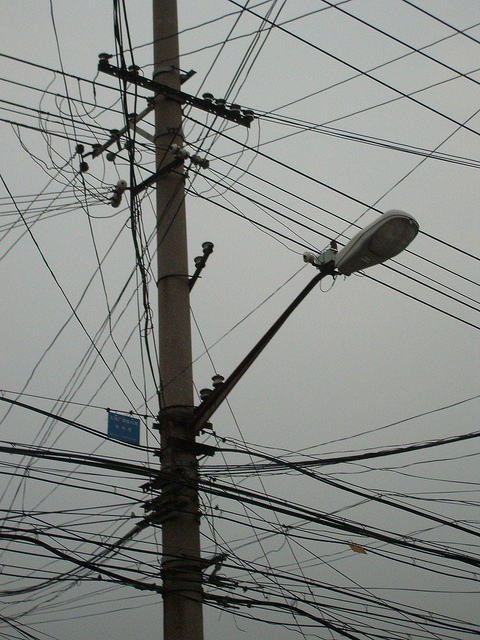The uncontrollable Network
on Archive
“The ultimate proof of our understanding of natural or technological systems is reflected in our ability to control them. Although control theory offers mathematical tools for steering engineered and natural systems towards a desired state, a framework to control complex self-organized systems is lacking”
These are the first words of a recent article “Controllability of complex networks” published on Nature by Yang-Yu Liu, Jean-Jacques Slotine & Albert-Laszlo Barabasi.
Barabasi is the person that started few years ago a new branch of science “The Science of Networks” and published the popular book “Linked” (which I strongly recommend!). What our metabolism, our social relationships and the Web have in common? How nodes in a Network grow? What are the rules that drives the creation of new links and how these impact the topology and distribution of a network? How do we control a Network?
On Tuesday 25th of January 2011 a popular uprising spread in Egypt starting from the street in Cairo. Quickly millions of protesters gathered demanding the overthrow of the regime of President Mubarak.
On Wednesday 26th for following 72hrs the government ordered a shut down of Internet and Mobile services access for most of the country after that several Facebook groups were created and tweets called for mass demonstrations. But this measure came too late to stop the uprising a quickly many protesters where able to circumvent the blocks and let information flow out of Egyptian border.
In November 2011 a new political debate started on the
This bill requires manipulating some of the core protocols of the internet, in particular DNS. They are at odds with efforts to improve the security of DNS and encourage the use of techniques that may be used ill-intentioned individuals.
Again today there are many form of protest and opposition to this bill, but in particular one attracted my attention: a loosely organised collective so-called Anonymous is forming a network of hacktivists that using Internet as a platform is targeting some of the groups and individuals supporting SOPA.
And what happens when this uncontrollable network system goes wrong? 6 months ago a teenager indadvertedly publicly posted his birthday party on Facebook, 1600 people turned up at her house causing some not so small troubles and 11 arrests.
And when this effects is spread so quickly that is impossible to react? One year ago a friend of mine shared this semi-fictional video presented at Ignite London 2010: “Flash Mob Gone Wrong” by Tom Scott: check it out
“Every single thing in this story has already happened, not at the same time, but has already happened”
The ironic fact is that a riot actually erupted few months later, in August, in London and many started, at least initially and probably not correctly, to put in the spotlight Internet social media and telecom firms!
Let’s go back to the original paper by Liu, Sloatine and Barabasi.
Their article is only one of the first studies on controllability of networks and I may commit the error of generalise it too much, but we can read the first results: Even if social networks are apparently more difficult to control, a few individuals could in principle control the whole system. At the same time social network are characterised by a very low number of link (relationship) that can be removed without affecting the controllability of the Network: that can be rephrased as most of relationship matter and cannot be ignored.
Finally, networks that are sparse and heterogeneous, like Internet , require the higher number of driver nodes, suggesting that such systems are difficult to control.
Probably is not an unexpected result… and somehow relieves me …but in other way doesn’t :/
How do we avoid and be ready to respond to potential bad reaction of the network? How do we avoid the bad effects without adding control measures?
I think the direction should come form underneath the network: create a background of ethical principles and stronger values that can be a canvas on which we draw our networks.
Increase the education and awareness of Internet users. As individuals learn stand up defending the right thing.
18 years ago when I was introduced to Internet and started posting on usenet after few days someone suggested me (…well, not very politely) to read the Netiquette: a set of social rules and conventions that facilitated interaction on Internet.
This was only a specific and small example. Today the Internet platform is incredibly more wide but at the same time we lost the existing few common rules.
I’ve never defined myself what Evgeny Morozov calls “cyber utopian” but I think we need new common and flexible principles that can adapt at the evolution of Internet and safeguard it. As individuals we must act as model citizens of our network space. If we don’t, I’m worried that sooner or later movements advocating for a more strictly controlled Internet under exceptional circumstances will succeed: maybe the next SOPA?
